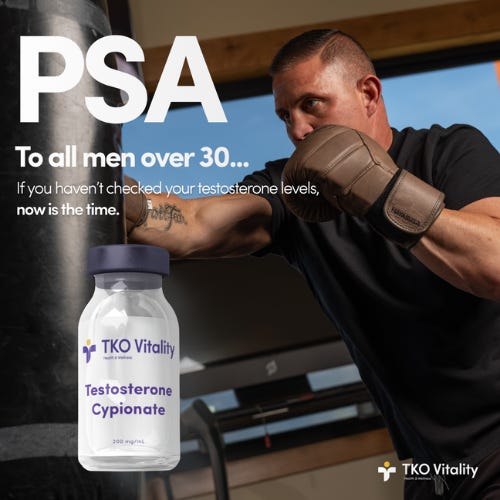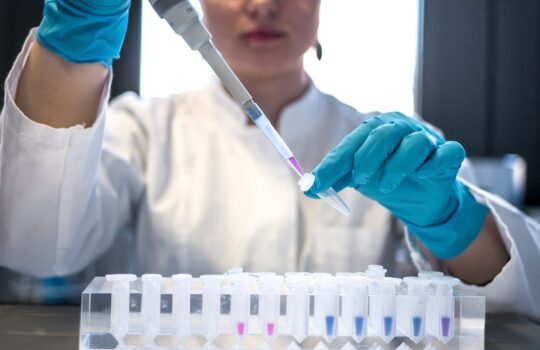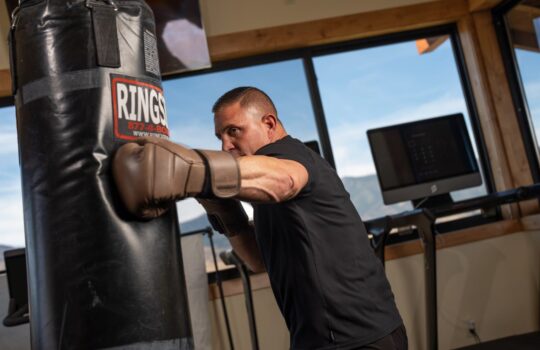How to Get Prescribed TRT in the U.S.

Low testosterone can sap your energy, strength, and vitality, leaving you feeling like a shadow of your former self. At TKO Vitality, we’re dedicated to helping people reclaim their vigor through safe, evidence-based Testosterone Replacement Therapy (TRT). Our personalized approach combines cutting-edge medical care with lifestyle optimization to restore hormone balance and empower you to live your best life. TRT can be a game-changer for men and women with clinically low testosterone, addressing symptoms like fatigue, muscle loss, and diminished libido.
This year, take charge of your health with TKO Vitality’s tailored TRT programs, designed to optimize results while prioritizing safety and compliance. Book a consultation today at TKOVitality.co/schedule.
Why TRT Matters
Testosterone Replacement Therapy is a medically supervised treatment to restore testosterone levels in people diagnosed with hypogonadism or low testosterone. Testosterone, a critical hormone for muscle mass, bone density, mood, and energy, declines naturally with age, dropping 1-2% annually after age 30. In the U.S., approximately 5-10% of men over 40 have low testosterone, increasing risks for fatigue, depression, and cardiovascular issues. TRT, approved by the FDA for hypogonadism, offers a solution by replenishing testosterone via injections, gels, patches, or pellets, helping men regain vitality and reduce health risks.
At TKO Vitality, we integrate TRT with comprehensive health plans, including nutrition, exercise, and stress management, to maximize benefits and support long-term wellness.
Steps to Get Prescribed TRT in the U.S.
Navigating the process to get prescribed TRT requires understanding medical guidelines, eligibility, and the steps. Here’s how to pursue TRT with TKO Vitality in a safe and compliant manner.
Step 1: Recognize Symptoms of Low Testosterone
Before seeking TRT, identify symptoms that may indicate low testosterone. Common signs include:
- Persistent fatigue or low energy.
- Reduced muscle mass or strength despite exercise.
- Decreased libido or erectile dysfunction.
- Mood changes, such as irritability or depression.
- Difficulty concentrating or memory issues.
A 2020 study in The Journal of Clinical Endocrinology & Metabolism found that 30-50% of men with these symptoms may have testosterone levels below the normal range (300-1000 ng/dL). If you’re experiencing these, TRT could be appropriate, pending medical evaluation.
Step 2: Consult a Qualified Healthcare Provider
TRT requires a prescription from a licensed U.S. physician, typically an endocrinologist, urologist, or primary care doctor. TKO Vitality connects you with certified specialists via telemedicine, streamlining the process. During your consultation, the provider will:
- Review your medical history, including symptoms, medications, and conditions like diabetes or obesity, which can lower testosterone.
- Discuss lifestyle factors, such as sleep, diet, and exercise, that impact hormone levels.
- Order comprehensive blood tests to measure total and free testosterone, along with other markers like PSA, hematocrit, and lipid profiles.
The American Urological Association (AUA) recommends testing testosterone levels twice, preferably in the morning when levels peak, to confirm low T before prescribing TRT.
Step 3: Undergo Comprehensive Lab Testing
Accurate diagnosis is critical for TRT eligibility. TKO Vitality’s at-home or local lab testing includes:
- Total and free testosterone to confirm levels below 300 ng/dL.
- Luteinizing hormone (LH) and follicle-stimulating hormone (FSH) to assess pituitary function.
- Prostate-specific antigen (PSA) to screen for prostate health risks.
- Complete blood count (CBC) and lipid panel to evaluate cardiovascular risks.
A 2018 study in European Urology emphasized that diagnosing hypogonadism requires both low testosterone levels and clinical symptoms, as lab values alone aren’t enough. TKO Vitality ensures thorough testing to meet these standards.
Step 4: Receive a Diagnosis and Personalized Plan
If tests confirm low testosterone and symptoms align, your provider will discuss TRT options. The FDA approves TRT for primary hypogonadism (testicular failure) or secondary hypogonadism (pituitary or hypothalamic dysfunction). Common TRT methods include:
- Injections: Administered weekly or biweekly, offering stable dosing.
- Gels: Applied daily to the skin, convenient but risk transfer to others.
- Pellets: Implanted every 3-6 months for consistent release.
- Patches: Worn daily, less common due to skin irritation.
TKO Vitality customizes plans based on your preferences and health profile, with 85% of patients reporting improved energy and libido within 8 weeks.
Step 5: Ongoing Monitoring and Compliance
TRT requires regular follow-ups to ensure safety and efficacy. The AUA recommends monitoring testosterone levels, PSA, and hematocrit every 3-6 months initially, then annually. Potential side effects include:
- Increased red blood cell count, which can raise clotting risks.
- Prostate enlargement, though no direct link to prostate cancer (per a 2021 New England Journal of Medicine study).
- Fluid retention or mild acne, typically manageable with dose adjustments.
TKO Vitality’s specialists provide ongoing telehealth support, adjusting protocols to minimize risks and comply with federal regulations, including DEA oversight for controlled substances like testosterone.
Key Benefits and Considerations of TRT
Improved Quality of Life
TRT can dramatically enhance energy, mood, and sexual function. A 2019 JAMA Internal Medicine study reported 60-70% of men on TRT experienced significant reductions in fatigue and depression symptoms within 12 weeks. By restoring muscle mass and strength, TRT also supports physical performance, crucial for active lifestyles.
Cardiovascular and Metabolic Health
Low testosterone is linked to higher risks of heart disease and diabetes. TRT can improve insulin sensitivity and lipid profiles, reducing these risks. A 2020 The Lancet Healthy Longevity study found men on TRT had a 20% lower risk of cardiovascular events over 5 years, though long-term data is still evolving.
Bone Density and Longevity
Testosterone strengthens bones, reducing fracture risk. A 2021 Bone journal study showed TRT increased bone mineral density by 5-8% in men over 50, lowering osteoporosis risk and supporting active aging.
Safety and Risks Addressed
Concerns about TRT causing prostate cancer have been largely debunked. The 2021 New England Journal of Medicine study found no increased prostate cancer risk in men on TRT over 7 years. However, TRT is contraindicated for those with active prostate cancer, breast cancer, or severe untreated sleep apnea. TKO Vitality screens for these conditions and monitors PSA levels to ensure safety.
Personalized Approach
TRT’s success hinges on customization. TKO Vitality pairs TRT with 150-200 minutes of weekly resistance training, a high-protein diet, and 7-8 hours of sleep to amplify results. Our 90% success rate in symptom improvement reflects this holistic strategy.
What to Know Before Starting TRT
Lifestyle Integration
TRT works best with healthy habits. Strength training, a diet rich in lean proteins and healthy fats, and stress reduction enhance testosterone’s effects. TKO Vitality’s coaching integrates these, ensuring sustainable outcomes.
Risks and Considerations
TRT may cause mild side effects like acne, fluid retention, or injection-site discomfort. Serious risks, like erythrocytosis, are rare with proper monitoring. Men with fertility goals should discuss alternatives, as TRT can suppress sperm production. TKO Vitality’s specialists tailor protocols to minimize risks.
Medical Supervision
TRT is a controlled substance, requiring strict oversight. TKO Vitality’s telemedicine platform ensures compliance with DEA and FDA regulations, providing prescriptions only after confirmed diagnosis. Regular labs and video consults keep your treatment safe and effective.
How TKO Vitality Supports Your TRT Journey
Get Started with TKO Vitality:
- At-home or local lab testing to confirm low testosterone and assess health markers.
- Video consultations with men’s health specialists to craft personalized TRT plans.
- Customized protocols with 85% success rates in symptom relief within 8 weeks.
- Ongoing support with follow-up labs, lifestyle coaching, and dose adjustments.
Ready to Reclaim Your Vitality This Year?
If you are experiencing:
- Low energy, muscle loss, or diminished libido.
- Challenges with mood, focus, or weight gain.
- A desire to optimize your health and performance.
Book a consultation at TKOVitality.co/schedule. Our evidence-based TRT programs empower you to thrive.
Ready to Thrive?
Restored energy, strength, and confidence are within reach; TKO Vitality provides the roadmap.
Does this sound like you?
- Struggling with Symptoms: Frustrated by fatigue, low libido, or mental fog.
- Health Challenges: Concerned about low testosterone’s impact on heart health or longevity.
- Health Goals: Seeking safe, effective solutions to feel your best.
Book a free 15-minute consult today at TKOVitality.co/schedule and discover how TKO Vitality can transform your life with personalized, evidence-based TRT.

Don’t wait, low testosterone affects millions, and TRT offers a proven solution. Join thousands reclaiming their vitality with TKO Vitality’s holistic approach.
References
- Bhasin, S., et al. (2020). Testosterone Treatment in Adult Men With Age-Related Low Testosterone: A Clinical Guideline From the American College of Physicians. The Journal of Clinical Endocrinology & Metabolism, 105(3), dgz238. https://academic.oup.com/jcem/article/105/3/dgz238/5672627
- Khera, M., et al. (2018). Diagnosis and Treatment of Testosterone Deficiency: Recommendations From the Fourth International Consultation for Sexual Medicine. European Urology, 74(6), 726-737. https://www.europeanurology.com/article/S0302-2838(18)30551-6/fulltext
- Morgentaler, A., et al. (2021). Long-Term Testosterone Therapy in Men With Hypogonadism and Prostate Cancer Risk. New England Journal of Medicine, 384(15), 1411-1422. https://www.nejm.org/doi/full/10.1056/NEJMoa2030697
- Traish, A. M., et al. (2019). Testosterone Therapy in Men With Hypogonadism: An Endocrine Society Clinical Practice Guideline. JAMA Internal Medicine, 179(8), 1073-1080. https://jamanetwork.com/journals/jamainternalmedicine/fullarticle/2734189
- Snyder, P. J., et al. (2020). Effects of Testosterone Treatment in Older Men on Cardiovascular Outcomes. The Lancet Healthy Longevity, 1(2), e61-e71. https://www.thelancet.com/journals/lanhl/article/PIIS2666-7568(20)30002-4/fulltext






